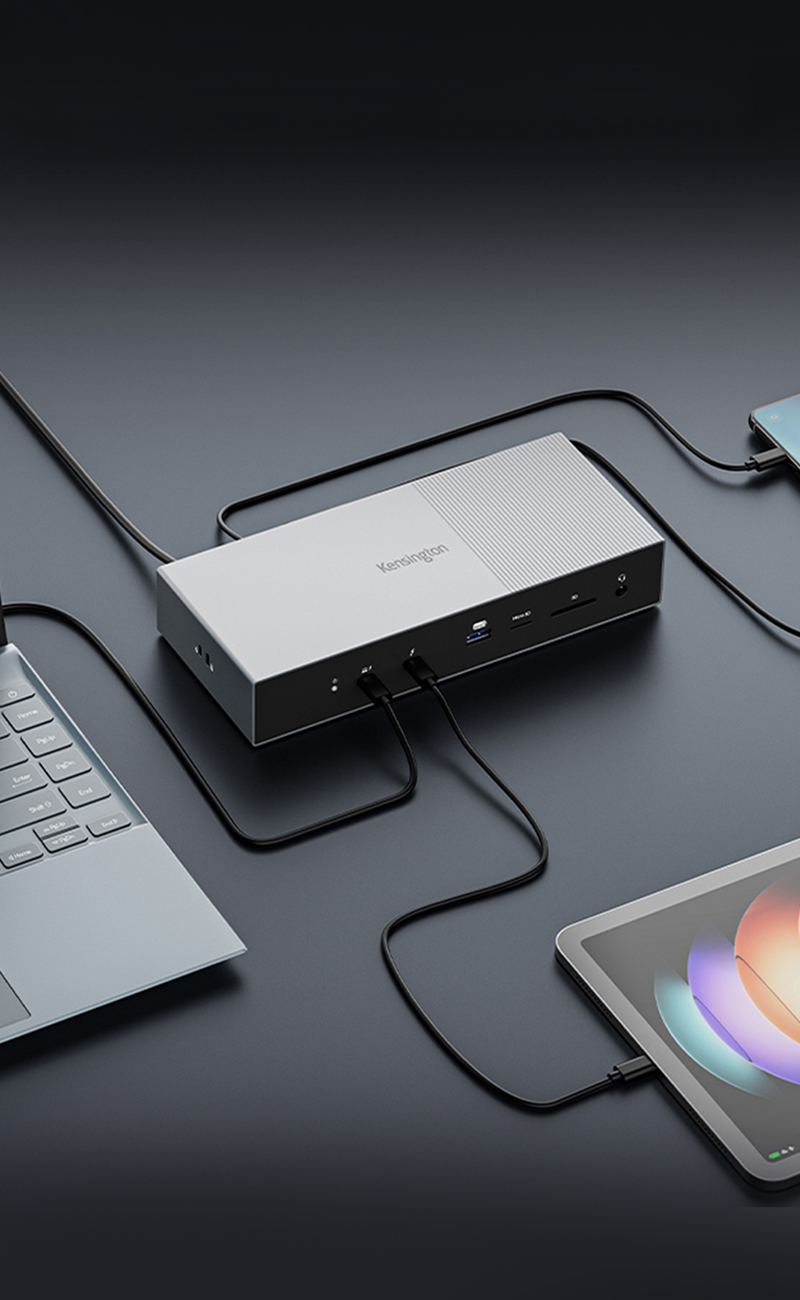Five simple steps can reduce the risk of laptop theft and data breaches
According to the FBI, a laptop is stolen every 53 seconds in the United States. The consequences of laptop theft can be severe for individuals and corporations, and the risks range from device replacement costs, to lost productivity to compromised confidential information. Surprisingly, the report shows that the most common place for laptop theft to occur is in an office. Kensington Computer Products Group, a worldwide leader in delivering smart. safe. simple.™ computing accessories, recommends five essential tips for keeping laptops safe and company data secure in the business environment.
Increasingly, a more mobile workforce employs smartphones, tablets, and laptops to create and access company information anytime and anywhere. While the mobility of these devices allow for more flexible and convenient business operations, they are more susceptible to loss or theft. Small and easily concealed, these devices commonly go missing. When mobile devices wind up in the wrong hands, it can compromise the sensitive business data on the device itself, or the data on corporate networks which can be accessed using the device. While the costs for replacing mobile devices are relatively small, the risks involved with data loss can be substantial. Especially at risk are those industries that are regulated in how they deal with data and privacy issues, such as healthcare and financial service providers.
Surprisingly, the most common place for a laptop to be stolen is at the office. According to the IDC, 58 percent of laptop theft occurs within the office leading 85 percent of IT managers to suspect internal theft.1
Kensington Computer Products Group has released five simple steps to decrease laptop theft, emphasizing physical security as the first line of defense against data infringements. These guidelines for physical security are consistent and extend the standards identified by the ISO 27000 internations data security standards.
Five Steps to Prevent Laptop Theft
- Set Guidelines: Update security policies to set expectations for use in and out of the office. Equipment should be locked at all times in areas open to the public and at home, even when in use. Laptops should also be locked while traveling whenever possible.
- Provide Information: Communicate the threats and consequences of laptop theft. For example, 58 percent of laptops are stolen from the office and 85 percent of managers suspect internal theft. Make sure to discuss the combined repercussions of loss of client data, IP, data breaches, company reputation, employee downtime, and replacement costs.
- Demonstrate Proper Lock Usage: Understanding and being comfortable with a lock will increase user compliance. Choosing an easy to use and quick locking system is critical. Kensington's ClickSafe locks will securely lock a laptop with just one simple click.
- Have a Backup Plan: Physically securing a device is just the first line of defense against data theft. Creating a comprehensive security plan is the most effective way to protect your business. For example, recommend never leaving a laptop logged onto networks, email, or websites and always shutting down or activating a password protected screen saver.
- Reward Compliance: Canvas workspaces for proper use, rewarding secure workstations and confiscating unlocked computers.
1Source: "IDC Executive Brief: Laptop Theft- The Internal and External Threats" Created: September 2010, by Ed Cordin, Phil Odgers, & Julian Bret.
2 Source: FBI Computer Survey, Abagnale, F., Matt, B., & Glen, A., et al. (2005). 2005
Notes to editors
About Kensington
Kensington is a leading provider of desktop and mobile device accessories, trusted by IT, educators, business and home office professionals around the world for more than 35 years. Kensington products empower people to dynamically interact with content, creating a better working experience for productive performance. In both office and mobile environments, Kensington’s extensive portfolio of award-winning products provides trusted security, desktop productivity innovations, and ergonomic well-being. Our core competencies in engineering, industrial design, product quality and responsive customer support make Kensington The Professionals’ Choice™.
Headquartered in San Mateo, California, Kensington operates as the technology division of ACCO Brands (NYSE: ACCO), one of the world’s largest designers, marketers and manufacturers of branded business, academic and consumer products, sold in more than 100 countries across the globe.
Kensington is the inventor and worldwide leader in laptop security locks, the acknowledged leader of Trackball innovation and offers a broad range of premium-branded desktop productivity solutions.
